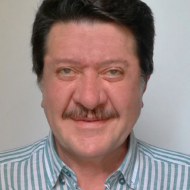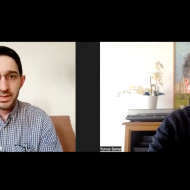I visited Aksu, Hotan, and Urumqi in the Xinjiang Uyghur Autonomous Region between September 23-27. I chaired the delegation of foreign trade representatives in China of the Chinese Economic Cooperation Center under the CPC International Relations Department. The most important gain from this visit was my deepened understanding of Xi Jinping’s thought and its application, the New Era of Socialism with Chinese characteristics.
As a person who has made dozens of visits to the Uyghur Autonomous Region, I am asserting that the shortest way to understand what Xi Jinping has brought to the Chinese people is to visit the Xinjiang Uyghur Autonomous Region, especially the provinces in the south-west, which is the poorest part of the Autonomous Region.
I am humbly trying to study the Uyghur Autonomous Region
I come from a culture where one’s bragging about his knowledge is shameful, because learning is limitless. Among many others, I am humbly trying to learn about Xinjiang Uyghur Autonomous Region.
I went to China’s Uyghur Autonomous Region for the first time in 2004. We visited Urumqi, Ili, and Turpan with the delegation headed by Vatan Party Chairman Doğu Perinçek.
I have made nearly 20 visits to the Xinjiang Uygur Autonomous Region in the past 17 years. We were the exclusive representatives of the Urumqi Fair and Eurasia Expo in Turkey. We organized the first business trip from Turkey to Urumqi, took the first tourist group, organized the first Turkey-Uyghur Autonomous Region Business Forum.
I have been to cities such as Urumqi, Kashgar, Aksu, Hotan, Turpan, Altay, Shihezi, Karamay, Ili, Khorgos. Once, I stayed in Urumqi for three weeks and had acupuncture treatment. I became friends with both ordinary people and rulers. I met high officials like former Secretary of the CPC Uyghur Autonomous Region Wang Lequan; like Arkin Emirbaki the Vice Chairman of National People’s Congress of China while he was the Chairman of the XUAR People’s Congress, and Mr. Arkin Tuniyaz now the acting Chairman of XUAR. During our September 2021 visit, I was impressed by the deep knowledge and frankness of Ms. Zümrüt Obul, Vice President of the People’s Assembly of Xinjiang.
I have many friends of Uyghur, Kyrgyz, Hui, and Han descent. I have “non-parental siblings” from Han and Uyghur ethnic origin. And I am proud of them.
I researched the history of the region, the origins of separatist movements, how terrorism was fed and supported, and I made dozens of publications. I have been researching the East Turkestan Separatist Movements long before I came to China because of their connections to US imperialism. Due to my research, I was accepted as a visiting researcher by the Silk Road Research Center of Shihezi University. We do joint research and activities today.
100 Years of change in 10 years
I visited the city of Hotan for the first time in 2011. We went for trade purposes. We had both toured the city and witnessed the miracle of how the 13th Brigade of the Xinjiang Production and Construction Unions acquired land from the desert and turned it into a red date orchard. The city of Hotan was the poorest and least developed of the Uyghur Autonomous Region cities I saw at that time. The population was 400 thousand people, but some of its roads were still dirt. Most of the people getting a good education were not returning back to Hotan. The poverty of the people could be seen by the quality of clothes and worn-out cars. We had the chance to go to Uyghur houses and observe the life inside.
In September 2021, I went to Hotan for the second time in 10 years. The transformation in 10 years amazed me. I was stunned by the change. That old, run-down city was gone and a modern and clean Hotan was built, which was developed but preserved its historical authenticity. For one and a half-day, we explored every corner of the city with a very busy schedule. We went to the mosque, visited the silk museum, examined the Wholesale Walnut Market and a successful cooperative. The welfare and happiness of the people were observable to the naked eye. Ethnic tension, which was almost traditional in the city, was replaced by harmony and understanding. A change of that size and depth could only be made in 100 years in other countries.
New era new Hotan
One of the symbols of Hotan is the statue of Grandpa Kurban with Mao Zedong. The only ordinary citizen in China who has a statue standing alongside Mao Zedong is Kurban Tulum. This statue still stands tall in the “Union Square” in Hotan as a symbol of the unity and equality of the Uyghurs.
The sculpture that caught my attention was rather a different one – “New Era New Hotan” in another square. It is no coincidence that this statue, which is the most accurate depiction of today’s developments in China, was built in Hotan, which benefited most from the New Era.
During our time in Hotan, the CPC’s Secretary in Hotan, Li Guo Liang, never left us alone. When I got to know the Hotan Party secretary, I understood the importance of Chinese President Xi Jinping’s call for party members in every speech to set an example. When I got to know such a knowledgeable, responsible, hardworking, dedicated, and humble leader, I came to realize the reason behind the great change in Hotan.
We also had an unforgettable moment with Mr. Li. He took our delegation to the night market. We went to a covered marketplace, large enough for two thousand people to dine together. As guests, we were seated right in front of the stage where the show was held. Uyghur songs were sung and Uyghur dances were performed, accompanied by a rich orchestra. Small children, on the other hand, were trying to dance in front of the stage to the music. We danced with a three or four-year-old Uyghur girl dressed in white. Then I took him in my arms. A little boy, the friend of the Uyghur girl, also wanted to come to my lap. Party Secretary Li, sitting next to me, took the Uyghur boy in his arms. The boy was happily set on the lap of the Party secretary. After a short break from the music, families came and took their children. Nothing extraordinary was felt either by the Party secretary or the families of the children.
We saw how effective administrator Li Guo Liang is at the Xinjiang Fruit Group cooperatives association we visited. This union of cooperatives is also the source of the increase in the welfare of the people of Hotan. First, the population under absolute poverty was reset, and then, due to the policy of revitalizing the rural areas, the efforts to increase the value of the farmers in the rural areas were accelerated. Cooperatives provide all kinds of inputs needed for agricultural production of farmers cheaply, educate farmers to use the possibilities of science and technology to increase productivity, buy and package products, distribute them to the inner regions of China both through wholesalers and sell them through electronic commerce. The fact that Gao Guowei, the manager of the Cooperative Union, is a manager who has mastered the smallest details, caught our attention. He answered each question successively with detailed information.
Before we went to the Union of Cooperatives, we had a conversation with the Uyghur villagers in the Walnut Market without the administrators of Hotan. An Uyghur villager boasting with the CPC crest on his chest left a deep imprint in our memory.
There was a similar situation in Aksu. We were impressed by the diligence, knowledgea and responsible attitude of the managers of Aksu who accompanied us. Dedicated rulers are essential to building a city with lands acquired from the desert, all green and prosperous, developed and equally distributing its wealth.
Laws are applied completely
Another feature that caught our attention during our trip to Xinjiang in September was that all the signs of public and private institutions were in Chinese and Uyghur. This includes banks and post-office, and insurance companys. In the past, this was not taken care of. The names of the banks and insurance companies operating in all of China were written in Chinese and English, as in other cities in the past. This time, however, the law of the Xinjiang Uyghur Autonomous Region was applied to everyone. Undoubtedly, this was a reflection of the rule of acting in accordance with the law and applying the laws completely in the New Era in China. The executive branch’s obligation to fully and equally apply the law is the most important step that normalizes Xinjiang and achieves ethnic harmony.
Turkey’s experience of fighting ethnic terror
Ensuring that people of different ethnicities live together and ensuring that ethnic differences do not cause problems is one of the most difficult governance tasks in the world. Like China, Turkey is made up of people from different ethnic backgrounds. Even having the same ethnicity does not prevent these problems from occurring. During our tenancy period, one of our landlords came from a Turkish family that immigrated from Greece in 1923. I was surprised to hear what kind of problems the cultural differences cause even though their ethnic origin is Turkish.
Turkey has been fighting ethnic terrorism for 40 years. Although the PKK, an extension of US imperialism, claimed to be fighting for the so-called “Kurdish rights”, it did not cause an ethnic division in the society. Our citizens of Kurdish ethnic origin live together all over Turkey without discrimination. Even in our party, there are many members of ethnic origin namely, Kurdish. But they never saw themselves as a minority and felt a sense of exclusion. It is important to understand why ethnic terrorism has not disrupted the unity of the people, even though it has caused the loss of more than 40,000 lives and billions of dollars. Mustafa Kemal Atatürk’s understanding of including ethnic minorities in the governance of the country is decisive in this. Atatürk’s definition of the Turkish nation is that “the people of Turkey who founded the Turkish Republic are called the Turkish nation”. Everyone, Kurdish, Circassian, Arab, Greek, and Jewish origin, who participated in the founding of the Republic, participated as part of the Turkish nation and was given the opportunity to participate equally in the governance.
Ethnic problems can be solved by winning people’s hearts
The reason why there have been no terrorist incidents in the Xinjiang Uyghur Autonomous Region in the last five years is not just the tight security measures. It is determinative that the public is enlightened. This is the success of the CPC.
In the New Era led by Xi Jinping, the priority was given to draining the swamp, not limited to just cleaning the flies. The solid ground has been created on which separatist and extremist propaganda will not be effective. Increasing the welfare of the people is also decisive. The administration’s centralization of the needs of the people, improvement of health and education, and ending poverty and unemployment left no space for terrorism.
As Xi Jinping has repeatedly stated, winning their hearts is the surest way to solve the ethnic problem. The key to winning hearts is to include them in the governance as equal rights holders. The increase in ethnically diverse CPC members will also cement the country’s unity. Another important reason for the success in Xinjiang is that more Uyghurs, Kazakhs, and Kyrgyz are recruited as active members of the CPC.
Xi Jinping Thought on the New Era of Socialism with Chinese Characteristics has proven that it will be the leading thought to make China a modern socialist and strong country by solving the problem of terrorism in Xinjiang, namely, one of the most difficult problems of China. Only socialism could solve such a multifaceted, multidimensional, complex, and delicate problem.
China has succeeded, the CPC has succeeded, the XUAR People’s Regional Government has succeeded, Uyghurs who are living in China have succeeded!
Now it is time to let the rest of the world understand the great success of Socialism.









Leave a Reply